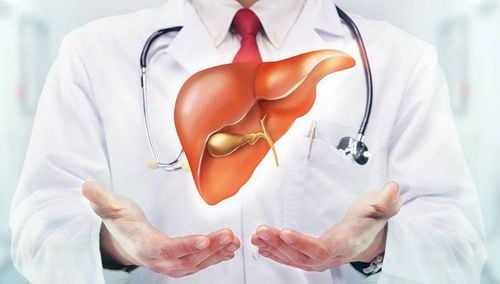This is an automatically translated article.
Oral sex, also known as oral sex, is often chosen by couples instead of traditional sex to preserve virginity or bring a new feeling in marriage.
1. Oral sex
Oral sex is using the mouth, lips, or tongue to stimulate a partner (act on the genital area, genitals or anus).
Oral sex is an enjoyable experience in an adult sex life.
2. Oral sex is associated with oropharyngeal cancer

Quan hệ tình dục với nhiều người bằng miệng có thể dẫn tới ung thư hầu - họng
Researchers have discovered that certain types of the human papillomavirus (HPV) are responsible for cancers of the pharynx, pharynx, and tonsils. And one of the causes of papillomas is oral sex.
From the late 1980s and early 1990s, the medical community was interested in the relationship between HPV and oropharyngeal cancer, because the number of cases of this type of cancer increased in patients who were not at high risk.
A study published in the New England Journal of Medicine in 2007 found that people who have oral sex with six or more sex partners face a much higher risk of oropharyngeal cancer. . And HPV 16 is often found in cancer patients who have oral sex with multiple sex partners.
Thus, oral sex can lead to oropharyngeal cancer and other types of oropharyngeal cancer.
It is currently unknown how many people get HPV through oral sex. Both men and women can be infected with HPV equally.
So far there is no really effective prevention. Expanded use of the HPV vaccine in men may be a solution, but there is insufficient evidence for this. Although the US Food and Drug Administration (FDA) has approved Gardasil - an HPV vaccine, for men 9 to 26 years old, but for the purpose of preventing genital warts, not to prevent HPV infection from sexual partners.
3. Oral sex can be exciting or vice versa
Oral sex can be enjoyable for some couples, but uncomfortable for others.
Usually people who do not like oral sex are afraid of hygiene issues, concerned about whether oral sex is safe? Besides, there are a number of other reasons such as fear of the partner's reaction, even the feeling of inequality when having oral sex.
Those who find it interesting to have oral sex say that this is a way to increase intimacy between two people, making couples more connected as they experience new and extremely personal feelings together.

Quan hệ tình dục qua đường miệng có thể gây hứng thú cho nhiều cặp đôi
4. Unprotected oral sex is common but risky
Sexually transmitted diseases can be transmitted through oral sex. The most common diseases transmitted by oral sex include herpes, gonorrhea and syphilis; Less common diseases are chlamydia, genital warts, hepatitis A, B, C, HIV,...
Oral sex is not absolutely safe. The potential risks depend on many factors such as how many sex partners, sex, specific oral sex behavior, etc. The risk of infection is higher if the mouth is injured, ulcers. Avoid brushing your teeth immediately after oral sex on your partner, use mouthwash to clean.
Using condoms during oral sex can reduce the risk of STIs. Things that can be used are condoms or mouth guards (when a mouth guard is not available, a condom can be cut vertically to make a replacement).
All surveys and studies show that the majority of people do not use protection during oral sex.
The cause of this fact is most likely due to a lack of understanding or disregard for the transmission routes of sexually transmitted diseases.
Being faithful to a partner who does not have an STI and using a condom during sex will minimize the risk of infection.
Due to the perception that oral sex is not as serious a problem as actual intercourse, many young people are not aware of the potential risks of this form of relationship.
Please dial HOTLINE for more information or register for an appointment HERE. Download MyVinmec app to make appointments faster and to manage your bookings easily.
The article has references to sources: webmd.com, and Nhs.uk












